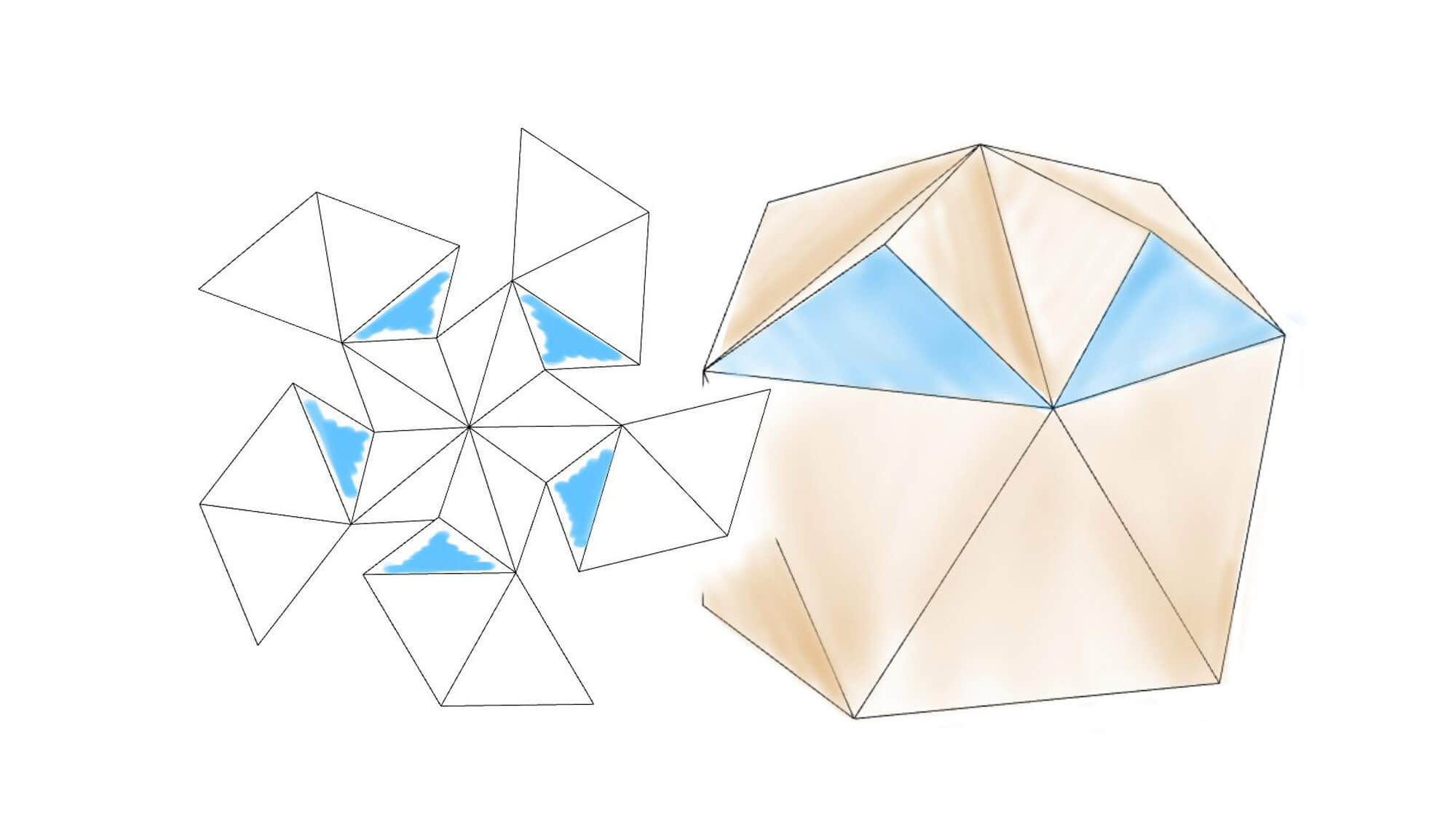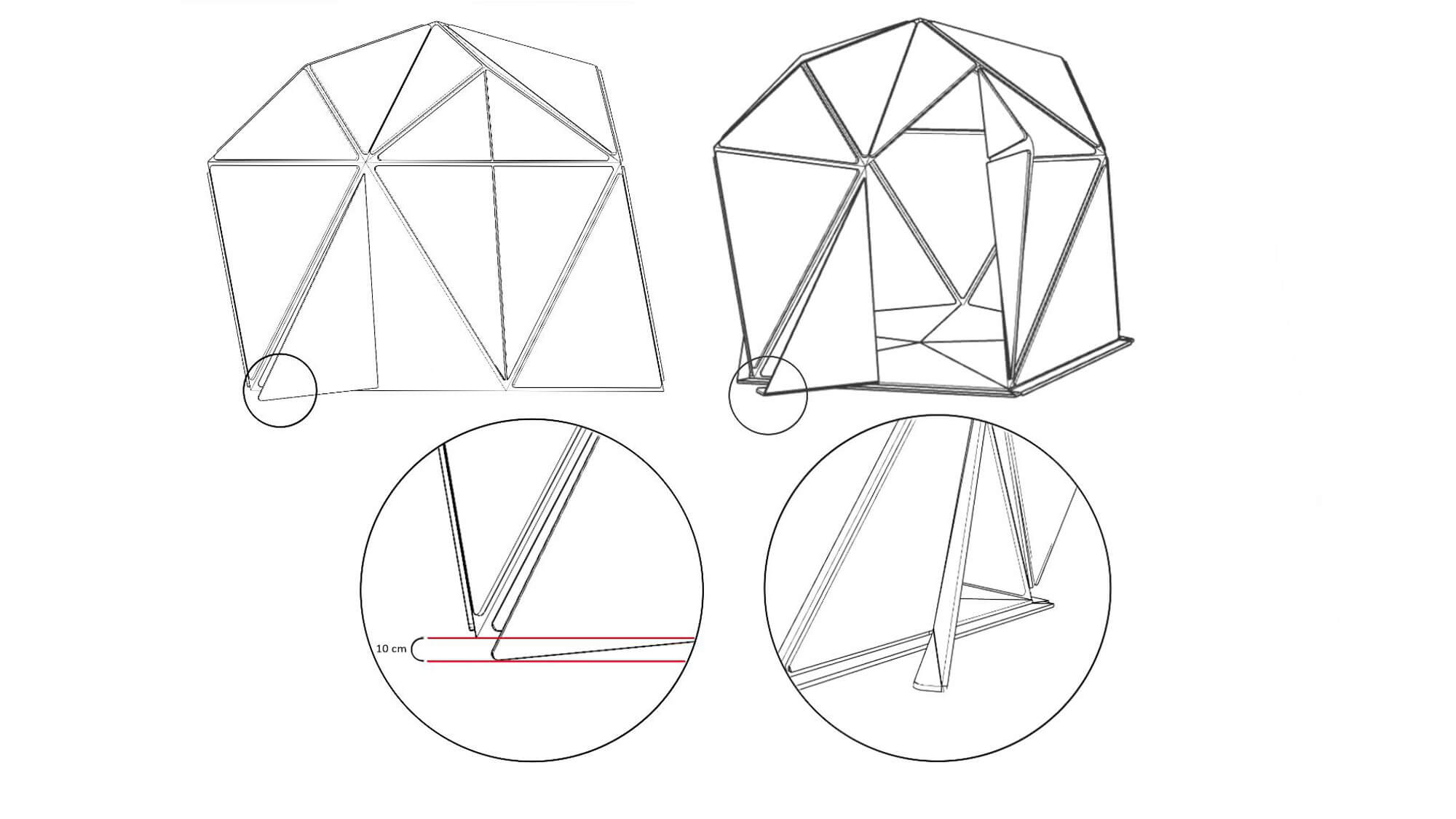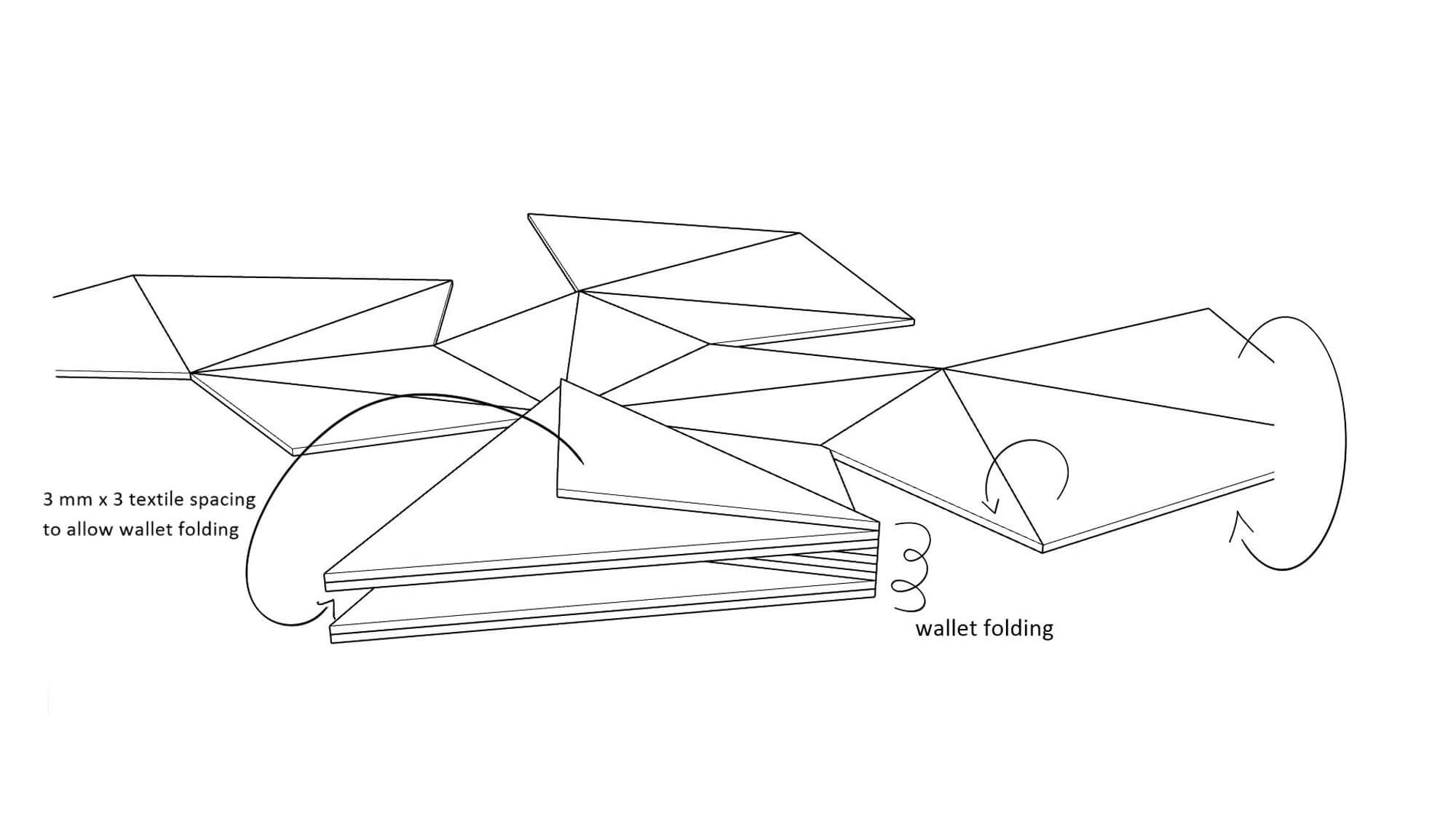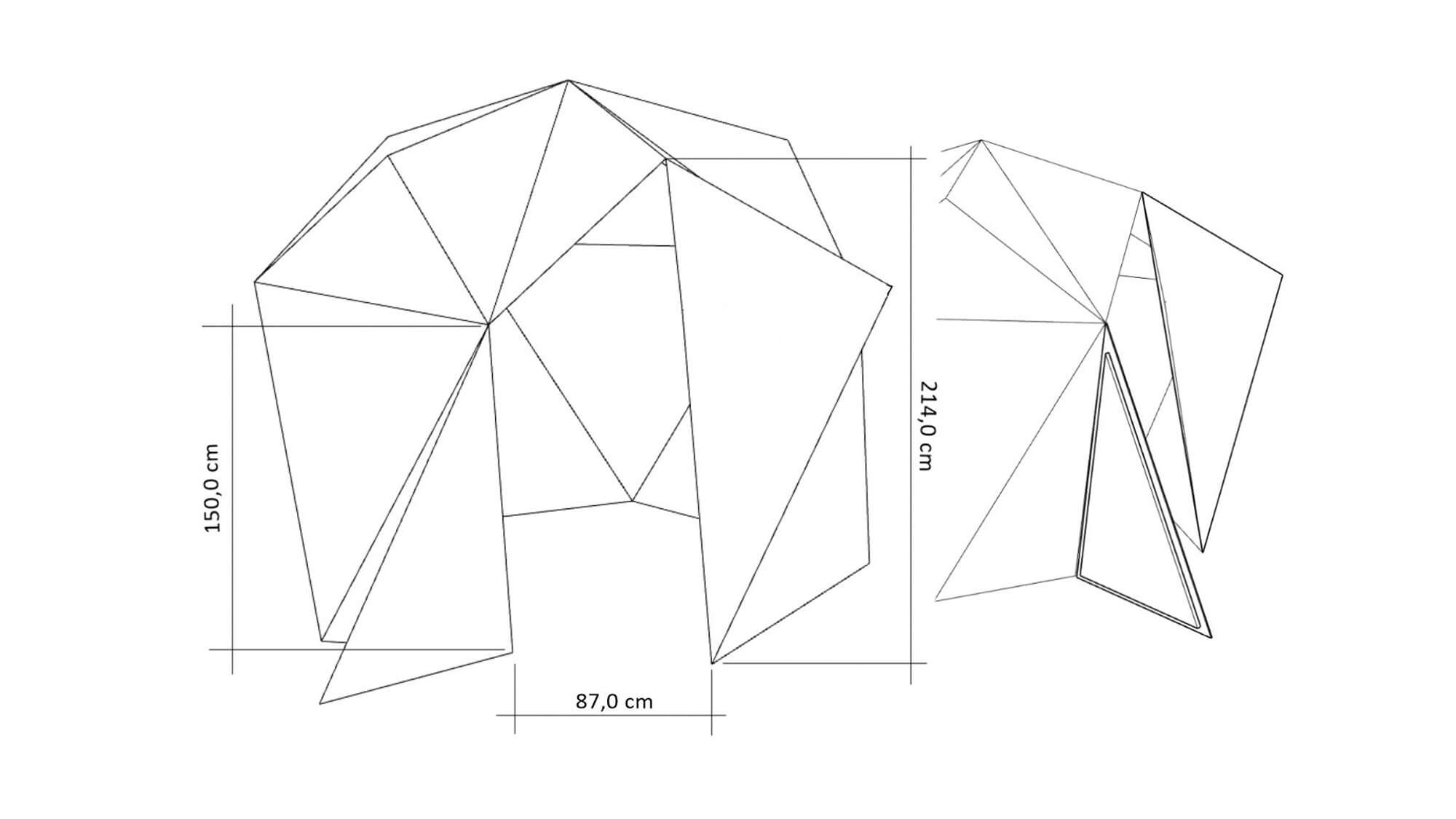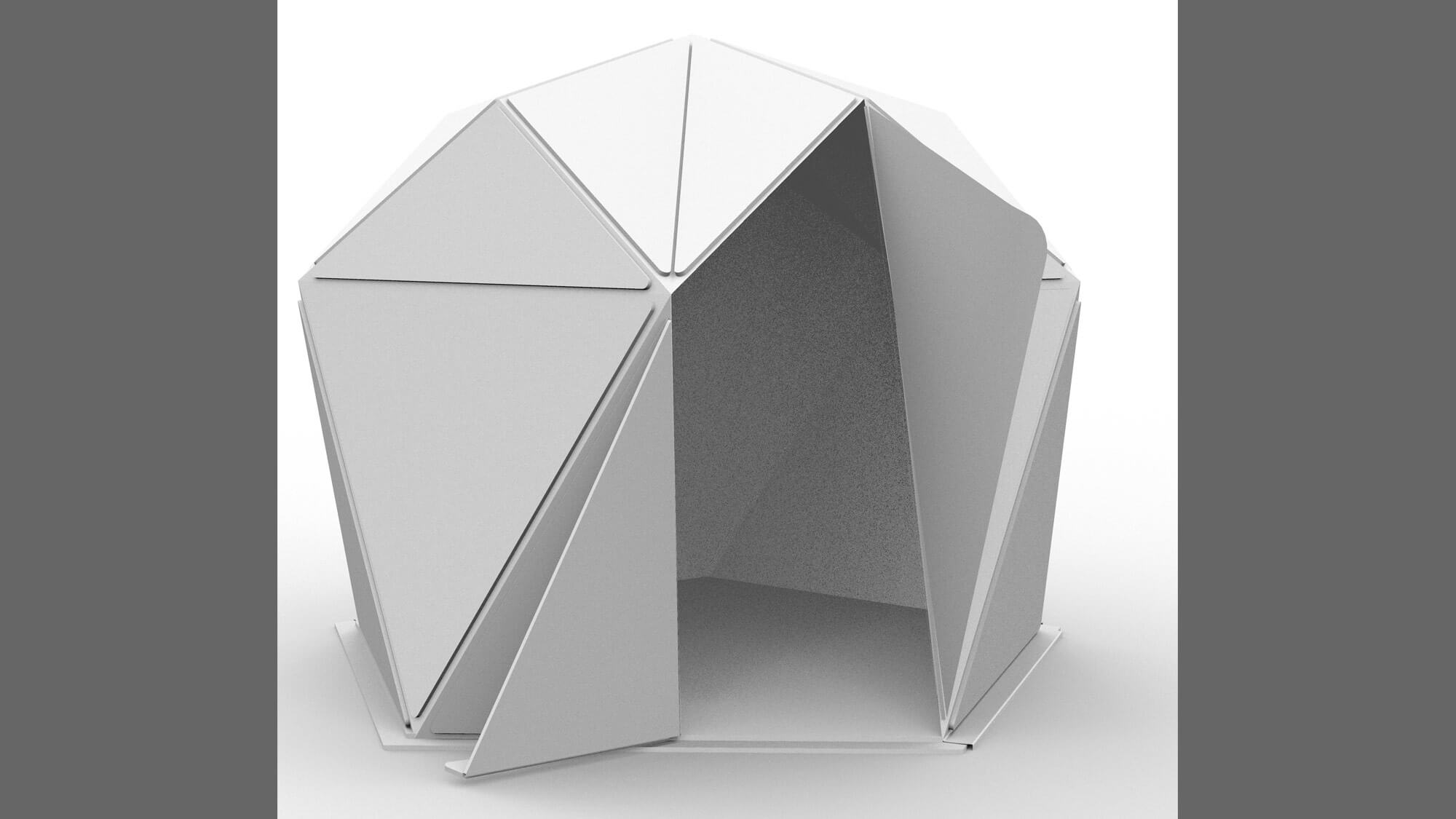The application of origami in social innovation, through the study of digital manufacturing, computational modelling and critical thinking
Ori Shelter combines origami and social innovation with digital fabrication – creating affordable, flat packable and self-sustained housing. Originally designed for the South African context, the product now aims to solve issues from homelessness to emergency situations like natural disasters. The Ori shelter is entirely foldable, and its shape resembles a small house, creating a sense of welcoming, appreciation, empowerment, maybe even home in extreme situations. The product is sustainable, reuses PVC truck covers and other recycled materials. Moreover, there was a thorough study concerning design for disassembly and ensuring that, at the end of its usage, the shelter is in turn recyclable. The base textile protects from outside climate and ensures privacy, while the solid tessellation provides structure and stability.
Credits
With the support of Ars Electronica Futurelab, in particular Matthew Gardiner, Anna Oelsch, Peter Freudling, Hideaki Ogawa and with the support of the University of Johannesburg, Industrial Design department, in particular Martin Bolton and Oratile Mokgatla.
Chiara Croci (IT)
Chiara comes from a family of teachers and carpenters. While during her former years she focused on scientific disciplines, she decided to persue a more artistic journey in university. She has a background in Industrial Design which she studied at the University of Ferrara and completed her BA in 2020. In 2021 Chiara obtained a BA Hons at the University of Johannesburg, where she is now enrolled and towards the conclusion of MA. Consistently with the topic of her thesis in computational origami and digital fabrication, Chiara is working at the Futurelab as an assistant in Origami and Robotics research. Her life goal since she approached industrial design has been to make the world surrounding us a better place, one small project at the time.
